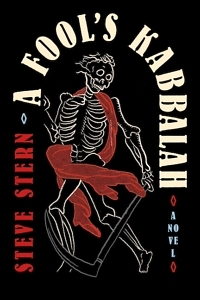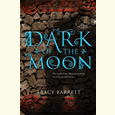Laughter in the Face of Despair
Steve Stern connects the ridiculous and the sublime in A Fool’s Kabbalah
A scholar of Jewish mysticism, a village idiot, and a beautiful girl walk into a haunted library. Sounds like the beginning of a particularly bad joke, right? With a setup like that, readers might be forgiven for wondering how there could be a coherent punchline. In A Fool’s Kabbalah, Memphis native Steve Stern has generated cohesion where none should exist, creating connections between the ridiculous and the sublime.
 The scholar is Gershom Scholem, the real-life historian tasked with trawling the Continent to reclaim sacred texts confiscated by the Nazis or hidden in hopes they might one day be retrieved by future generations. Though successful in some cases, Scholem frequently encounters curators or other officials who insist they should retain the material, which one librarian in Berlin insists “is well cared for and accessible to all who are interested.”
The scholar is Gershom Scholem, the real-life historian tasked with trawling the Continent to reclaim sacred texts confiscated by the Nazis or hidden in hopes they might one day be retrieved by future generations. Though successful in some cases, Scholem frequently encounters curators or other officials who insist they should retain the material, which one librarian in Berlin insists “is well cared for and accessible to all who are interested.”
“Everybody here who was ‘interested,’” Scholem retorts, “is dead.” His logic doesn’t convince, though it does contribute to the feeling that logic holds little place in this devastated world.
German-born Scholem, who immigrated to Mandatory Palestine in the 1920s, is also caught off-guard by his reaction to war-torn Germany, a sight he thought he was prepared for. “But so great was the magnitude of the destruction Gershom beheld that it was impossible to imagine that civilization could ever recover from such an incalculable laying to waste. It was a destruction so complete that it seemed to exceed what the imagination could apprehend, and Gershom was sickened by his inability to make sense of what he saw. Hadn’t making sense of the inconceivable always been his strong suit?”
Walking alongside Scholem’s effort in the novel’s present is a narrative strand based a few years in the past and focusing on Menke Klepfisch, the “shtetl scapegrace” of Zyldzce, a village time seems to have forgotten until, of course, the Nazi occupiers descend and rumors of the Holocaust become realities. Menke is a fool, completely unable to resist the temptation of a joke or a prank, even serving at one point as something of a court jester to the occupying forces in his town. When Blume, the beautiful rabbi’s daughter he has loved since childhood, challenges him on this role, he responds, “Blume, when I do my monkey business I am making them forget to do theirs. It’s a mitzvah!” To which, the luminous Blume replies, “And this you believe?”
 Despite the slapstick efforts of Menke, A Fool’s Kabbalah is bleak, whether depicting the merciless torture and suffering of the people of Zyldzce or Scholem’s increasing despair over the impossible task he has been set, doomed by recalcitrant administrators and the endless tedium of paperwork: “This is how the People of the Book become the people of papers.”
Despite the slapstick efforts of Menke, A Fool’s Kabbalah is bleak, whether depicting the merciless torture and suffering of the people of Zyldzce or Scholem’s increasing despair over the impossible task he has been set, doomed by recalcitrant administrators and the endless tedium of paperwork: “This is how the People of the Book become the people of papers.”
When a last-ditch attempt at restitution through subterfuge fails, Scholem is forced to return to his post in Palestine, where his dream of “a binational state shared equally by Arabs and Jews” is “being blown to pieces.”
As with all of his work, Stern draws upon a deep well of Jewish history and folklore in this heartbreaking novel punctuated by Yiddish slang, wordplay, and countless jokes. Where some might try to marshal a kind of sense out of the terror and desolation, Stern focuses on the nonsense of it all. And though none of this could be deemed a laughing matter, there is a certain bone-weary persistence in the humor that laces through these pages, an insistence, perhaps, that laughter in the face of despair is sometimes the only sensible response.
As for the joke about the haunted library? The truth, of course, is there is no punchline. But it’s also true that the language and the stories survived; if they had not, Stern would have no well upon which to draw. Gershom Scholem “had been tasked with salvaging what was left of a world” and returned to Prague “a broken man,” but still believing in “the gospel of the kabbalists: that words — Hebrew words in particular — had souls.”
Stern knows this, too, and though A Fool’s Kabbalah is at times perplexing and thick with pain, it proves the truth of this gospel: the power of stories — and a dose of humor — to preserve and protect a people and its history.

Sara Beth West is a librarian and a freelance writer focusing on book reviews and author interviews. In addition to Chapter 16, publications include Kirkus, Shelf Awareness, BookPage, Southern Review of Books, and more. She lives in Chattanooga.


